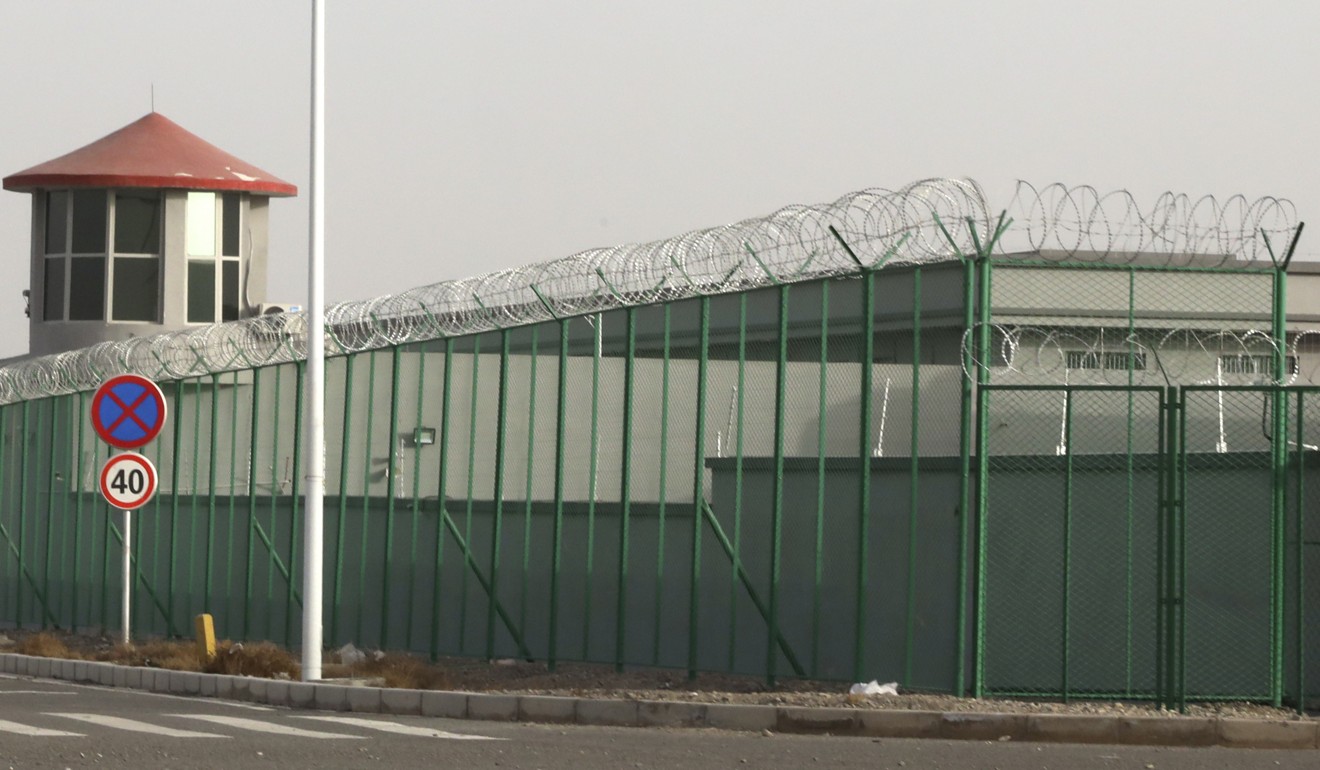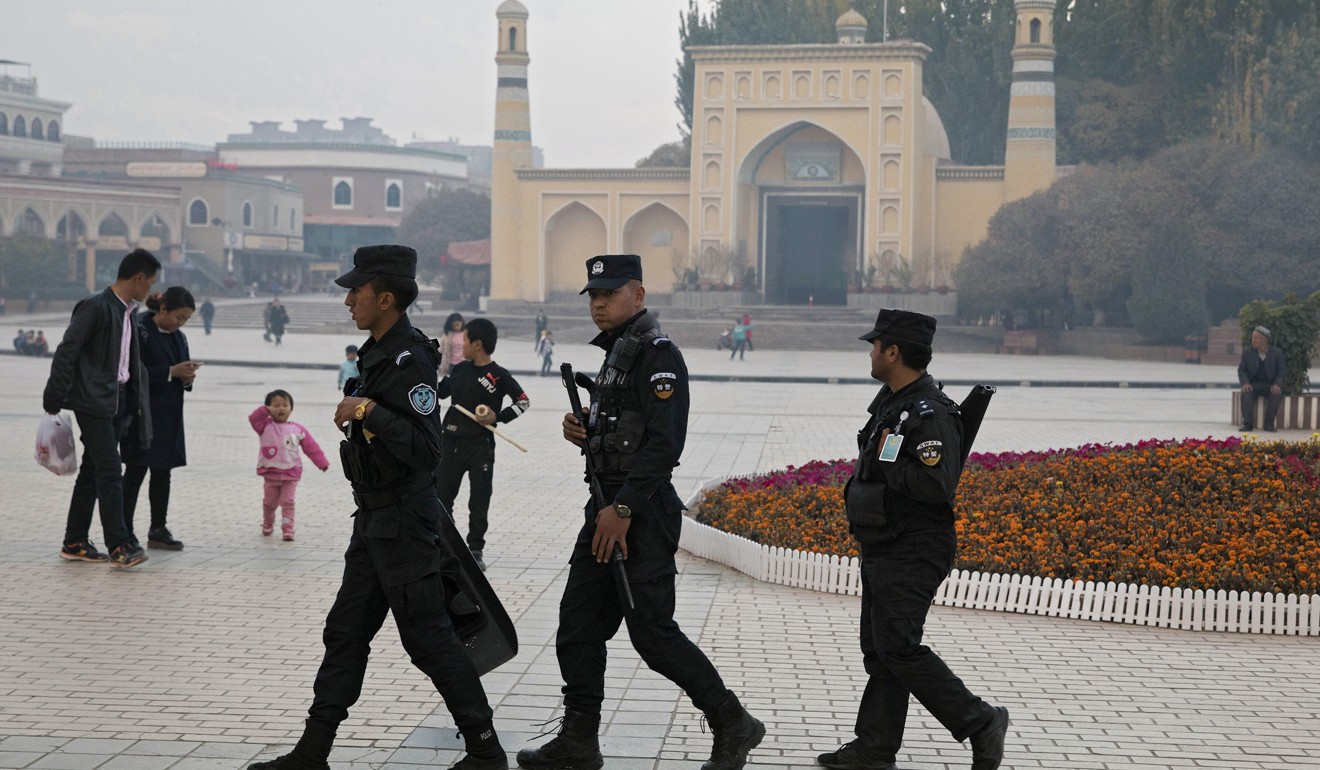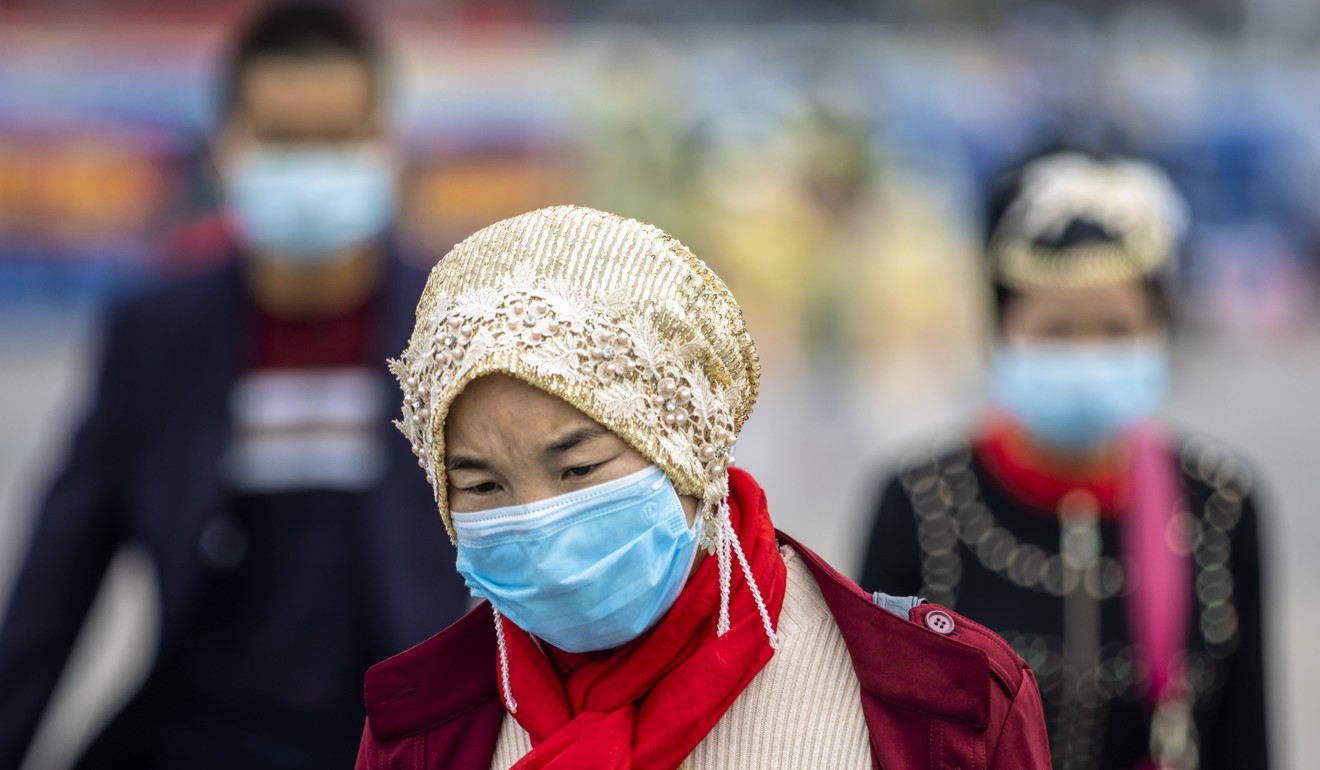
Big name brands accused of using Uygur ‘forced labour’ by Australian think tank
- Google, Microsoft, Siemens, Sony and Adidas are among the 83 global brands named by the Australian Strategic Policy Institute in its report
- Some workers are thought to have been sourced from Xinjiang’s controversial re-education camps that Beijing calls ‘vocational training centres’

More than 80,000 Uygurs have been moved from the far-western Xinjiang region to work in factories around China that supply dozens of household brands such as Apple, Nike, Huawei and Samsung, a report by an Australia-based security think tank has found.
Under a programme known as “Xinjiang aid,” the Chinese government between 2017 and 2019 facilitated the mass transfer of Uygurs to work “under conditions that strongly suggest forced labour”, sometimes drawing labourers directly from re-education camps that have drawn widespread international condemnation, according to the report released by the Australian Strategic Policy Institute (ASPI) on Sunday.
The report said the work programme represents a “new phase in China’s social re-engineering campaign targeting minority citizens” following the announcement late last year that all those in Xinjiang’s so-called vocational training centres had “graduated” and taken up employment.
The United Nations has estimated that up to 1 million Uygur and other Muslim minority citizens are being arbitrarily detained in the camps, which Beijing insists are necessary to combat terrorism and radicalisation.

“In factories far away from home, they typically live in segregated dormitories, undergo organised Mandarin and ideological training outside working hours, are subject to constant surveillance, and are forbidden from participating in religious observances,” said the report, which is based on open-source documents, satellite pictures, academic research and on-the-ground reporting.
“It is extremely difficult for Uygurs to refuse or escape these work assignments, which are enmeshed with the apparatus of detention and political indoctrination both inside and outside of Xinjiang.”
Chinese Foreign Ministry spokesman Zhao Lijian on Monday said ASPI’s report had “no factual basis” and that the measures taken in Xinjiang had achieved good results and were supported by different ethnic communities.
“At present, all the trainees who have participated in deradicalisation training have graduated. With the help of the government, they have achieved stable employment and live a happy life.”
Zhao also accused the think tank of “smearing” China's efforts to deradicalise Xinjiang, adding that the Australian organisation has long faced accusations of receiving financial support “from the US government and arms dealers”.
The report identifies 83 global brands that benefited from Uygur labour at 27 factories in nine Chinese provinces and regions, including household names such as Google, Microsoft, Mitsubishi, Siemens, Sony, Abercrombie & Fitch, Uniqlo, Adidas and LaCoste.
In one case study, the report describes how ethnic minority workers at Qingdao Taekwang Shoes – a South Korean-owned factory in Laixi City, Shandong province that supplies Nike – attend night school after work to learn Mandarin, sing the Chinese national anthem and receive “patriotic education”.

“The workers are closely monitored by party authorities,” the report said. “Officials from the local offices of the Public Security Bureau and United Front Work Department hold regular meetings with Shandong companies that hire Uygurs to discuss the workers’ ‘ideological trends and any issues that have emerged.’”
Yun Jiang, co-editor of the newsletter China Neican, said the findings were “not surprising, as we have seen plenty of evidence before this that prison labour or forced labour is used in China”.
“China’s record on human rights, particularly with respect to Uygurs, is blatantly atrocious, even before this new evidence,” she said.
ASPI, which is part-funded by Australia’s Department of Defence, the US State Department and Britain’s Foreign and Commonwealth Office, called on Beijing to uphold ethnic and religious rights enshrined in the Chinese constitution and said international companies should carry out due diligence on their supply chains.
“Foreign governments, businesses and civil society groups should identify opportunities to increase pressure on the Chinese government to end the use of Uygur forced labour and extrajudicial detentions,” the Canberra-based think tank said.

James Laurenceson, director of the Australia-China Relations Institute in Sydney, said the allegations of forced labour would prompt multinational firms to re-examine their ties to suppliers in the region.
“We know that Uygurs have been detained in Xinjiang in an extrajudicial manner and so the possibility this might be extended to coercive labour practices is something multinationals need to be aware of and proactively guarding against,” Laurenceson said. “In the coming weeks we can expect to see what these company investigations have revealed.”
Laurenceson said there were parallels with the scrutiny faced by the tertiary education sector which had forced some universities to reassess their ties with Chinese entities implicated in alleged human rights abuses in Xinjiang and elsewhere.
“If a similar process unfolds in the context of claims around coercive labour practices, that should be welcomed,” he said.
Purchase the China AI Report 2020 brought to you by SCMP Research and enjoy a 20% discount (original price US$400). This 60-page all new intelligence report gives you first-hand insights and analysis into the latest industry developments and intelligence about China AI. Get exclusive access to our webinars for continuous learning, and interact with China AI executives in live Q&A. Offer valid until 31 March 2020.